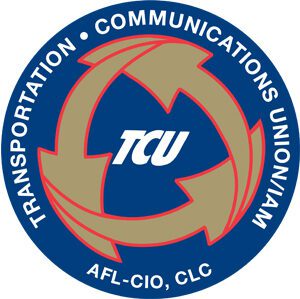On March 13, 2020, noting the President’s declaration of a national emergency related to COVID-19 and the World Health Organization’s characterization of COVID-19 as pandemic, Federal Railroad Administration (FRA) Administrator Ronald L. Batory activated an emergency relief docket (ERD) (Docket No. FRA-2020-0002). Activation of an ERD enables FRA to utilize its emergency waiver procedures to grant a petition for waiver without prior notice and comment if the Administrator determines it is in the public interest, the waiver is not inconsistent with railroad safety, and the waiver is necessary to address an actual or impending emergency situation or event.
On April 3, 2020, the Association of American Railroads, the American Short Line and Regional Railroad Association and the American Public Transportation Association (Petitioners) filed a joint request for emergency relief. Together, Petitioners represent the vast majority of railroads operating in the U.S.
The Petitioners, on behalf of their member railroads, requested relief from numerous regulatory requirements prescribed by Title 49 of the Code of Federal Regulations. On March 25, 2020, in response to their petition, FRA issued a 60-day emergency waiver for certain requirements of FRA’s rail safety regulations found in Title 49, due to the COVID-19 pandemic for all railroads operating within the U.S., including those that are not members of the Petitioners.
However, the relief is generally conditioned on the existence of workforce shortages and other constraints. In addition, railroads that find it necessary to utilize the waiver relief must document the basis on which they concluded that availing themselves of the relief was necessary. Any railroad utilizing any aspect of this waiver is required to report weekly to FRA through their respective industry association.
Both the Transportation Communications Union/IAM (TCU/IAM) and the Brotherhood Railway Carman Division of TCU/IAM, (BRC) joined with several other rail unions to request that FRA ensure that any railroad using this emergency relief follow the conditions FRA provided in its decision. More specifically, BRC joined with five (5) other rail unions in filing joint comments and a request for public hearing on the ERD. In addition, the Transportation Trades Department of the AFL-CIO, of which TCU/IAM is a member, also sent a letter to FRA Administrator Batory on the matter as well. The letter was signed by 12 rail labor unions, including TCU/IAM.
Among other things, the joint comments and letter to Administrator Batory provided that if a carrier finds itself short on active employees, its first option must be found in the abundant supply of out-of-work railroaders, not in administrative intervention to be exempted from safety-critical regulations. In addition, rail labor further requested that FRA make clear that a workforce shortage cannot be declared until these terms are met, and that this requirement be considered an amendment to all waivers granted contingent on workforce shortages. Moreover, rail labor also maintained that Class 1 railroads should be required to submit a weekly report on how and when the waiver was used, and what manpower shortages or other conditions called for the waiver.
“There is no doubt that we are living in unprecedented and difficult times,” says Carman General President and TCU/IAM Vice President Richard A. Johnson. “However, such circumstances should not provide a free pass for railroads operating in the U.S. to disregard the safety critical guidelines set forth in the Code of Federal Regulations; relief from such guidelines should only be allowed if it is absolutely clear that the carriers have no other choice but to do so.”
Click here to see FRA’s decision granting the 60-day emergency waiver.
Click here to see the joint comments filed by rail labor on the ERD.
Click here to see rail labor’s letter to FRA Administrator Batory.

